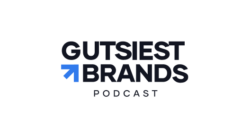We’ve gathered key takeaways from the on-demand event, “Futureproof your business with an ‘always on’ agile insights strategy,” focused on accelerating change by applying innovative insights strategies to business. Take a closer look at the 2021 consumer as well as key trends and areas of opportunity, or access the full event here. You can find Part Two of the series, Futureproofing your Business, Part II: Innovation and Insights at Top Companies Today.
2020 rocked the consumer insights world like never before. As the pace of change continues, it’s on businesses to stay in touch with ever-changing consumer behaviors and expectations — then strategize and execute accordingly.
Building and maintaining meaningful consumer connections is non-negotiable in today’s market, and it’s a continual process that’s centered around meaningful consumer intelligence.
That’s why Toluna’s Chief Executive and Founder Frédéric-Charles Petit sat down with Richard Thorogood, Vice President, Global Head of Consumer and Market Insights at Colgate Palmolive, to talk about industry trends including the importance of learning about consumers as individuals and allowing quality insights to make a real impact. Here’s what businesses should know.
Staying relevant means considering consumers as people.
To understand their decisions, businesses must stop thinking about consumers and start thinking more broadly about people — human beings as complex individuals. This means considering things like family, aspirations, and societal happenings to best determine how brands can deliver against them.
“If we as insighters don’t start thinking about the entirety of people’s lives, about the culture that they live in, we’ll never understand the decisions they make on trivial topics — such as whether to use a Colgate toothpaste or another product,” Richard shares.
Why? “COVID really has made the world realize there is much more to life than just those moments of purchase and consumption,” he continues. “And with the many of the other challenges society is facing… most people really don’t care about toothpaste. They’re thinking about much bigger issues. And unless we can connect around those bigger issues, we won’t have a future.”
Keeping in touch with consumers’ real lives and the trends and events shaping society is key to understanding your target audience today.
It’s on insights professionals to push businesses forward.
As experts of people, insights could be able to help any part of the business that involves decisions people are taking, and can almost be seen as an internal consultancy group to help solve business problems.
But where it once was, running surveys isn’t where insighters make a mark within their organization today. We live in a world where surveys can be executed and results gathered within hours — not days or weeks.
So instead of survey creation, insight professionals’ expertise is about using meaningful data to challenge historical thinking, unlock new opportunities, and push businesses forward.
“Now insighters’ expertise lies in bringing disruptive thinking to the business in a highly provocative way,” Richard says. “It’s about being confident, taking a point of view, pushing that forward very compellingly, and getting people to act upon it.”
“That’s how the insights organization will really continue to have leverage; not by doing more tests even faster. We’ll need to do those, but it’s about using that learning to create a much more holistic picture,” he shares.
It’s no longer about testing but learning.
Where tests imply real certainty and absolutism, learning implies building a bigger understanding of something, which is much more appropriate in today’s complex world.
Because of this, insights professionals must increasingly embrace the notion that we don’t live in a certain world and move to share learning, scenarios, and probabilities rather than absolutely and certainties, as Richard shares.
The future of insights demands curiosity and adaptability.
Moving forward, it’s important to remember that insights are about deeply understanding how humans make choices. The past year has forced insighters to become more comfortable with uncertainty and not being able to make guarantees. The pandemic reinforced the possibility for volatility, pushing professionals to consider possibilities and probabilities.
Tomorrow’s insights demand improved forecasting and refined predictions, as the future is about agility, probability, and keeping our antennas tuned for trends and changes along the way.
Insights should also play a role in cultural understanding because big data is a powerful source of learning, but better understanding people is essential.



 Back to Blog
Back to Blog

